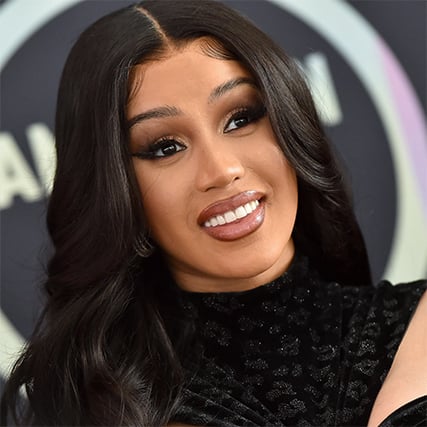Cardi B, the renowned American rapper, ignited a social media firestorm with her remarks on men’s dating preferences. During a live stream, she asserted that men often gravitate towards less conventionally attractive women due to a perceived submissiveness, contrasting them with women deemed “perfect 10s.” This statement, seemingly simple on the surface, sparked widespread debate and discussion about the dynamics of attraction, gender roles, and societal expectations placed upon women. Cardi B’s comments touched upon a complex interplay of factors that influence romantic relationships, including power dynamics, financial independence, and the pressures of conforming to idealized beauty standards. Her subsequent clarification on X (formerly Twitter) shed further light on the nuances of her perspective, highlighting the potential anxieties men may experience when faced with women who possess both physical attractiveness and a strong sense of self.
Cardi B’s clarification on X provided further context for her initial statement. She explained that the livestream conversation revolved around the challenges faced by women who are both financially independent and considered highly attractive. According to Cardi B, the discussion explored the notion that some men feel intimidated by women who possess these qualities, potentially fearing a loss of control or influence within the relationship. She recounted a conversation with a man who professed a preference for dating women he perceived as “6s” rather than “10s,” suggesting that this preference stemmed from a desire for a partner who might be perceived as easier to manage or less likely to challenge traditional gender roles. This perspective introduces the concept that societal pressures can influence dating choices, potentially leading individuals to seek partners who fit pre-conceived notions of submissiveness or compliance.
The rapper’s comments resonated with many who have experienced similar dynamics within their own relationships. Some women shared anecdotes of encountering men who seemed uncomfortable with their independence or success, echoing Cardi B’s observation about the perceived threat posed by strong, self-assured women. This perspective highlights the potential for societal expectations to create a double bind for women, who may feel pressured to downplay their accomplishments or conform to traditional gender roles in order to attract and maintain romantic relationships. The discourse surrounding Cardi B’s remarks also touched upon the broader issue of internalized misogyny, with some suggesting that men’s preference for less conventionally attractive women might stem from a desire to avoid partners who are perceived as “high maintenance” or challenging to their ego.
Conversely, many individuals challenged Cardi B’s generalization, arguing that attraction and dating preferences are highly subjective and influenced by a myriad of factors beyond physical appearance or perceived submissiveness. Some pointed out that generalizations about men’s preferences can perpetuate harmful stereotypes and ignore the diversity of individual experiences and desires. Critics argued that reducing attraction to a simple equation of attractiveness and submissiveness oversimplifies the complex emotional and psychological factors that underpin romantic relationships. They emphasized the importance of considering individual personalities, values, and compatibility rather than relying on broad generalizations about gender and attractiveness.
The timing of Cardi B’s comments also added another layer to the discussion. Coming shortly after her divorce from rapper Offset amidst allegations of infidelity, her remarks sparked speculation about the potential influence of her personal experiences on her perspective. While Cardi B did not explicitly link her statements to her own relationship, the timing inevitably led some to interpret her comments as a reflection of her own experiences with power dynamics and relationship challenges. This context underscores the personal nature of the issues she raised, highlighting how personal experiences can shape perspectives on broader societal issues related to gender roles and relationship dynamics.
Ultimately, Cardi B’s comments ignited a broader conversation about the complexities of modern dating and the enduring influence of societal expectations on romantic relationships. Her remarks touched upon the pressures faced by women to navigate the often-conflicting expectations of independence and traditional femininity, as well as the potential for these pressures to influence men’s dating preferences. While her generalizations sparked debate and disagreement, they also provided a platform for discussing the nuances of attraction, the challenges of maintaining healthy relationships, and the evolving dynamics of gender roles in the 21st century. The ongoing conversation spurred by Cardi B’s remarks serves as a reminder of the importance of open communication and critical examination of the societal norms that shape our understanding of love and relationships.














